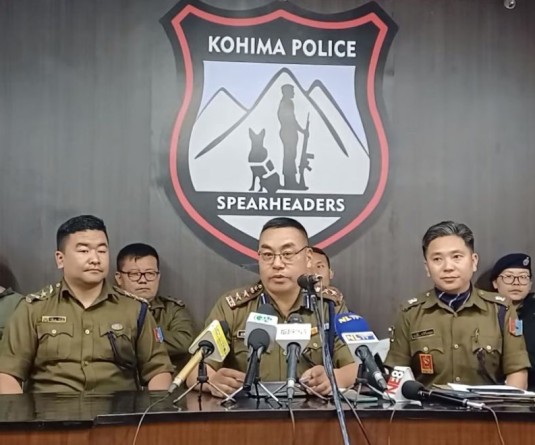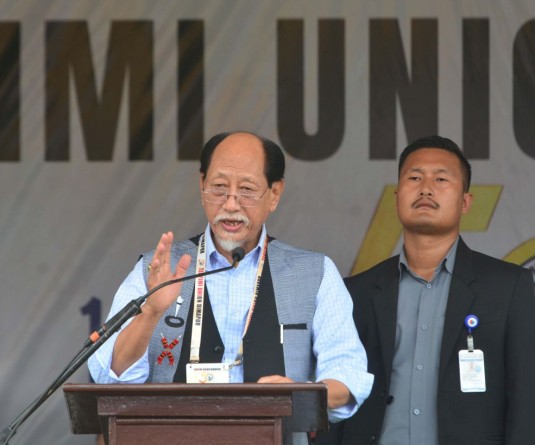
Kohima, November 30 (MExN): State Level Consultation on Reproductive Rights & Law was held on November 28 and 29 at the Conference Hall of Jubilee Memorial Centre, Lerie colony, Kohima organized and sponsored by Human Rights Law Network (HRLN) and European Union.
Advocate Kezhokhoto Savi, Assistant Professor Kohima Law College & President NVCO, resource person on the topic ‘Right Food - issues & challenges’ stated that after a delay of nearly three years, Nagaland Government on June 27, 2016 finally launched the much awaited ‘National Food Security Act 2013’ for Dimapur and Kohima.
To avoid unfair means of distribution and corrupt practices in dealing with the food grains the State Government must set up the State Food Commission failing which a Public Interest Litigation may be initiated, stated Advocate Savi, in a press release from Press & Media Cell, NVCO.
The National Food Security Act 2013 is an Act of Parliament of India, which aims to provide subsidized food grains to approximately two third of India’s population i.e 1.2 billion people.
To ensure proper transparency and accountability in the implementation, the Act makes a provision for setting up a social audit by the states, and to set up Food Commission and grievance redressal system at the district level for expeditious and effective redressal of grievances of the aggrieved person relating to distribution of entitlement, which none has been set up noted Savi. He further made an appeal to the participants representing different districts consisting of civil societies, students’ union, women, various projects and more than 30 LL.B final year students of Kohima Law College to create more awareness as future course of action with a challenge that each can contribute to educate the citizens of their entitlement.
Under the National Food Security Act 2013 those beneficiaries would be provided rice at Rs.3/- per kg, wheat for Rs.2/- per kg and jowar for Rs.1/- per kg. The Act categorizes the population into Antyodaya Anna Yojana(AAY) and Priority Household(PHH) where the poorest of the poor i.e AAY will receive 35 kgs of food grains/family/month while PHH will receive 5 kgs of foodgrain/person/month. Savi said that the Act is a statutory acknowledgement of hunger and malnutrition and making the right to food a legal entitlement.
In Nagaland the District Grievances Redressal Officer and State Food Commission is yet to be set up and the beneficiaries who are aggrieved of their rights cannot seek redress from the Government. It is mandatory for every State under the Act to set up State Food Commission for the purpose of monitoring and implementation of the Act, added the release and said that “The ‘Right to Life’ under Article 21 of the Indian Constitution also includes the ‘Right to Food’ and the Right to Food is the basic human right to live a life from hunger and lead a dignified life.”





